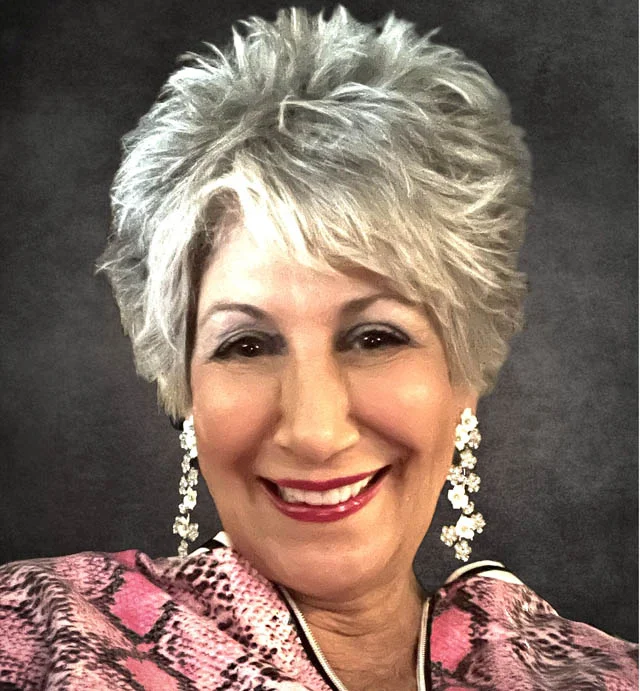Alright everyone, buckle up, because something genuinely heartwarming is happening in Cook County, Illinois, and it's got me thinking about the future of proactive, people-first governance!
For years, Cook County has grappled with the ever-present specter of late property tax payments, a situation that puts homeowners at risk of losing their homes in the annual tax sale. But Maria Pappas, the Cook County Treasurer, isn't just sitting back and watching; she's actively building a safety net for families.
Since 2005, Pappas's office has offered a Third-Party Notification program. The idea is simple, but brilliant: you can designate a relative, a friend, or even a community organization to receive copies of your delinquency notices before the tax sale looms. Think of it as a neighborhood watch, but for your property taxes! It’s like having a financial guardian angel watching your back, and honestly, it’s the kind of initiative that makes you feel like government can actually work for you, not against you. Third-party notices tell you if a relative or anyone you know misses a tax payment
This isn't just about bureaucracy; it's about human connection. It's about acknowledging that life gets messy, that people forget, that sometimes a little reminder from someone who cares can make all the difference. This program is tailor-made for the elderly, people with disabilities, those with serious health issues, or anyone who might be away from home for extended periods. It's a hand reaching out, saying, "Hey, we've got you."
Now, I know what some of you might be thinking: "Is this really necessary? Shouldn't people just pay their taxes on time?" And sure, in a perfect world, everyone would be on top of their finances. But we don't live in a perfect world. We live in a world where unexpected things happen, where people struggle, and where a little bit of compassion can go a long way.
What really strikes me is the elegance of the solution. It's low-tech – a simple form you mail in – but high-impact. It leverages the power of community, of personal relationships, to solve a systemic problem. It’s like turning a potential crisis into an opportunity for connection. And the fact that it renews automatically and is free for residential property owners? That's just icing on the cake.
Speaking of community, I saw someone on a local forum saying this was the "most innovative thing they've seen a local government do in years." It's this kind of ground-level enthusiasm that tells you something is really resonating.
The program isn’t for mortgage companies or banks, which makes total sense. This is about human connection, not corporate oversight. It's about empowering individuals and communities to support each other.

But here’s something to consider: could this model be expanded? Could we see similar programs for other essential services, like utility bills or medical appointments? What if governments proactively connected vulnerable populations with support networks, instead of waiting for them to fall through the cracks?
The Tax System Overhaul: A Necessary Evil?
Of course, the need for such a program also highlights some of the challenges Cook County has faced with its property tax system. The second installment of 2024 property tax bills was delayed by months due to an overhaul of the county’s property tax system plagued with problems. Originally due by August 1st, the bills were not mailed out until November 14th, with a due date of December 15th. Months Late, Second Installment of 2024 Cook County Property Tax Bills to be Due Dec. 15
Cook County officials have pointed fingers at a decade-old contract with Tyler Technologies, a Texas-based company, for the delay. The goal was to modernize the property tax billing system, but it hasn’t exactly gone according to plan. Maria Pappas even stated that the company had made so many errors that sending out bills earlier would have resulted in incorrect information for some taxpayers.
Now, this is where things get interesting. While the delay was undoubtedly frustrating for homeowners, it also spurred some creative problem-solving. Cook County Board President Toni Preckwinkle approved hundreds of millions of dollars in no-interest loans to local taxing bodies to offset any fiscal challenges that arose during the delay. It’s like when a bridge collapses, and instead of just lamenting the inconvenience, engineers come together and design an even better, more resilient structure.
It also raises a question: what if every government initiative was designed with this level of human consideration baked in from the start? What if we prioritized proactive support over reactive solutions? The implications are staggering.
I mean, imagine a world where governments anticipated our needs, where technology was used not just to streamline processes but to foster genuine human connection, where every policy decision was viewed through the lens of empathy and care. It’s a lofty vision, I know, but it's one worth striving for.
This program is a small but powerful example of what’s possible when governments prioritize people. It's a reminder that technology can be used to build bridges, not just walls, and that even in the most complex bureaucratic systems, there's always room for a human touch. It’s not just about taxes; it’s about trust, about community, and about creating a future where everyone has a fair chance to thrive.